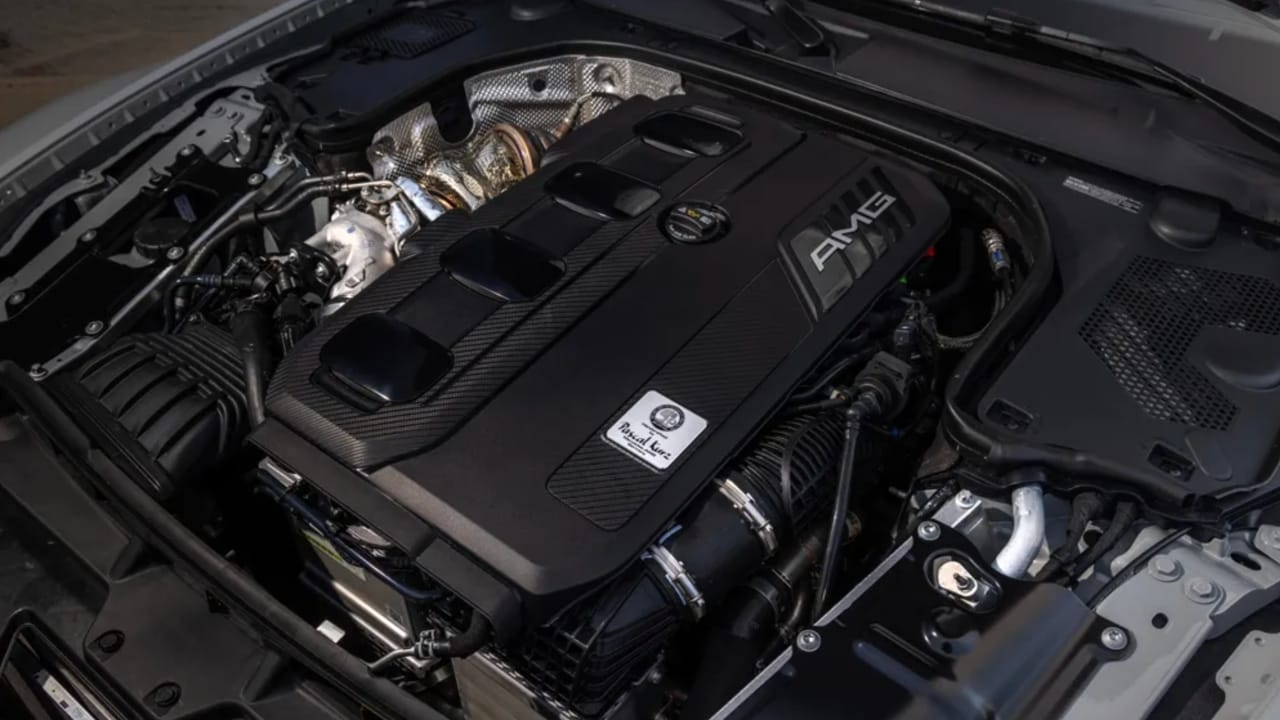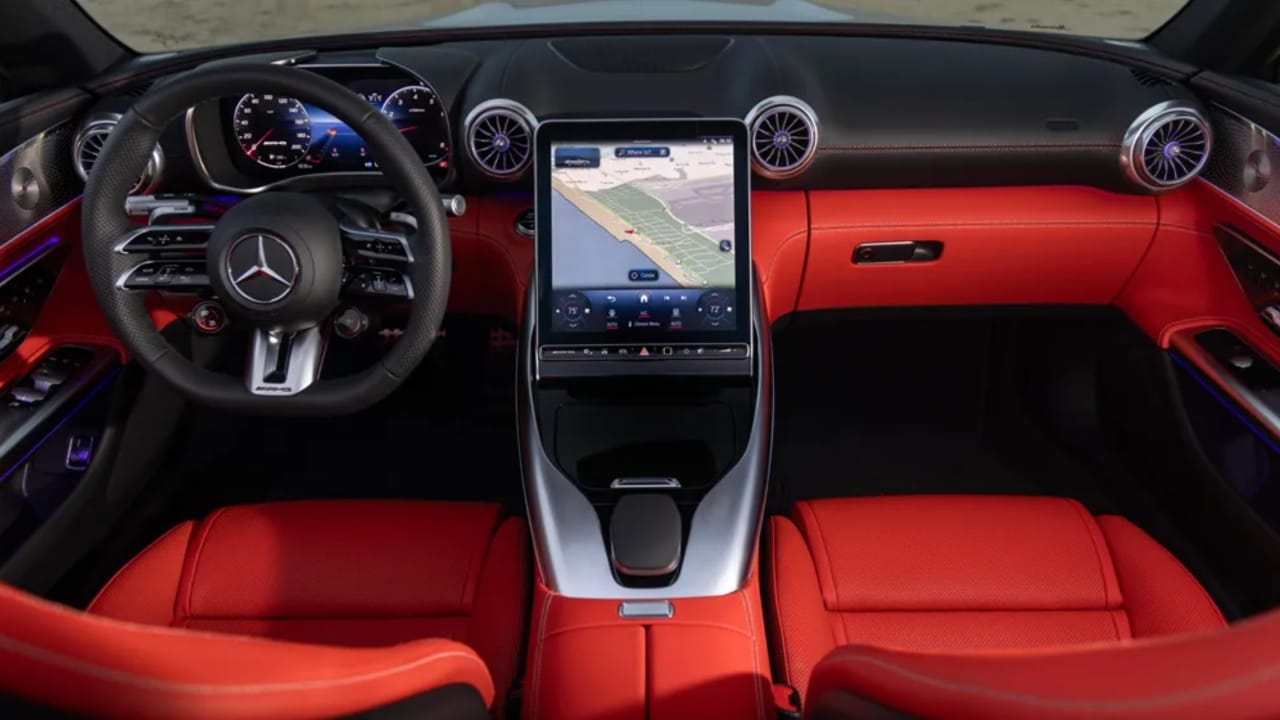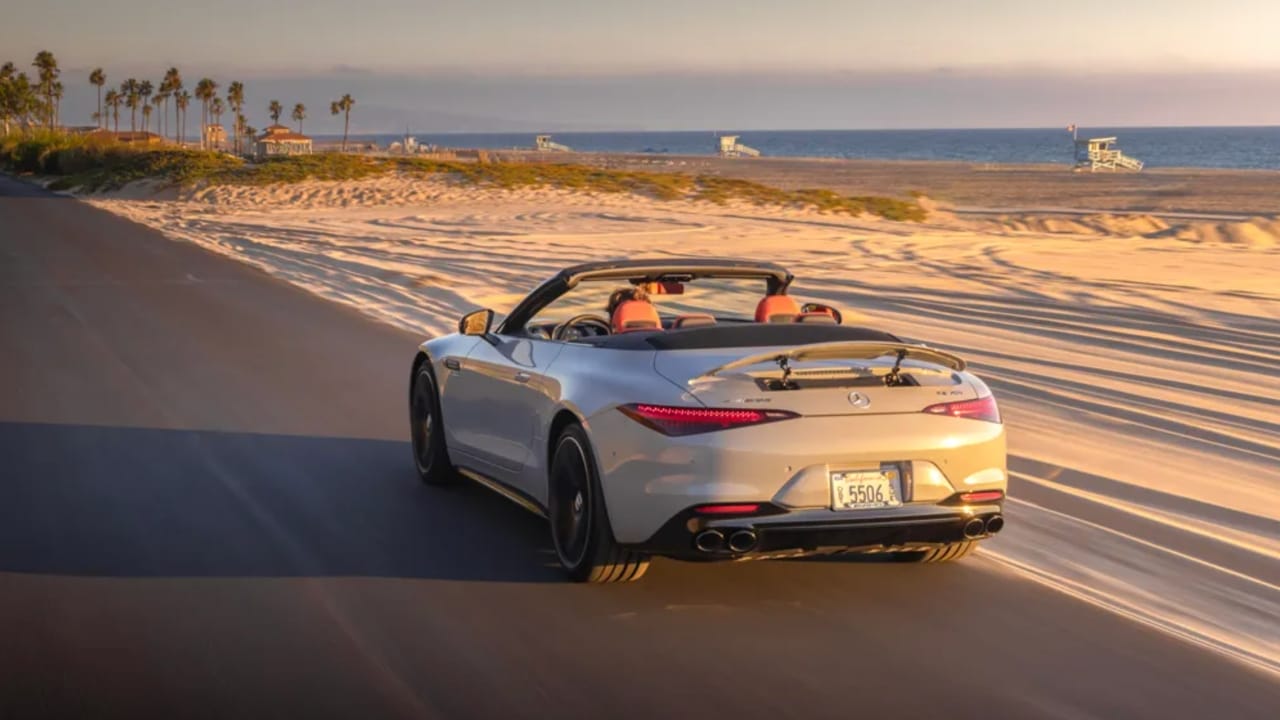The SL moniker for Mercedes-Benz is short for Sport-Leicht, or Sport Light in German. Fitting, as the model made a name for itself through weight reduction, launching as a wispy race car in 1952—one that later spawned an aggressively lightweight two-seat road car whose advanced engineering put it miles ahead of the competition. Eventually straying from those thoroughbred roots, the SL entered periods of weight gain which saw the addition of heavy folding hardtops and the availability of hulking V-12 engines that transformed it from a nimble convertible to a plush grand tourer.

The Stuttgart brand returned to sporting form when its high-performance AMG division took command of the roadster in 2021, lending it more focused capabilities in a svelter form. Now that the latest SL generation has seen two iterations of twin-turbocharged V-8 power in the AMG SL 55 and S 63, Mercedes-Benz is diving into its first four-cylinder convertible in 60 years. The ragtops are a’changing.

Starting at $109,900, the new Mercedes-AMG SL 43 inherits engine tech from Formula 1, similar to that found in the C63 S E Performance, notably an electrically driven turbocharger that reduces lag and helps the 2.0-litre, four-cylinder mill produces 375 hp and 354 ft lbs of torque. There’s a surprisingly loud exhaust note upon firing up the four-banger, and a noticeable chassis hum from the vibrating power plant at idle; from the feeling and the sound of it, Mercedes engineers intend the SL 43 to be an attention-grabber of a different sort than its heftier, silkier V-8 counterparts. The z-fold soft-top comes down in 15 seconds and can be operated at speeds up to 60 kmph, a welcome alternative to overstaying your welcome at a stoplight after it’s turned green.

There’s quite a bit of digital integration to the human/machine interface in the latest SL, from the portrait-oriented 11.9-inch touchscreen, which can tilt to avoid glare, to the prevalence of haptic controls to the general lack of mechanical buttons and switches. Some of this works, like the multimedia system’s Zero Layer functionality allowing all major settings to be accessible in the system’s default display. Others, like the slider-operated volume controls and lack of physical track-advance buttons, make the simplest tasks require more attention than we’d like.

While both V-8 versions and particularly the top-tier SL 63, deliver effortless, torquey off-the-line acceleration, their four-cylinder sibling feels noticeably less eager to sprint to 96 kmph (claimed to be achieved in 4.8 seconds). The SL 43’s nine-speed transmission offers plenty of gear choices, and the multi-clutch design uses a special wet start-off clutch for smoother acceleration from a standstill. However, the smoothness gained off the line is traded for a mixed bag of sometimes-abrupt gearshifts, especially when the drive mode is in more aggressive settings.

The mild-hybrid drivetrain also delivers power with sometimes surprising unevenness, which feels unfamiliar in an SL. After all, this is a model whose buttery linearity has become somewhat of a calling card. Especially from the 1990s-era R129 models onward, cruise ship–smooth drivetrains defined SLs as a sort of sporty take on the “luxobarge,” and the more pugilistic SL 43 marks a departure from that formula. Working to the car’s benefit, though, is an outstanding suspension system that evens out the bumps while feeling controlled and responsive. And an available adjustable damping system goes one step further in offering more options.

What I don’t love about the engine’s power delivery and smoothness is made up for by the SL 43’s handling. A full 353 pounds lighter than the SL 63, the smaller-engined model also claims better weight distribution, giving it more balance when cornering. In contrast to its all-wheel drive SL 55 and SL 63 stablemates, the SL 43’s rear-drive setup helps it feel more nimble and ready to rumble. Whether or not the milder, less satisfying power plant is a deal-breaker for SL shoppers will depend on their level of commitment to spirited driving.
For loafing around town, this entry-level Sport-Leicht from Mercedes offers all the looks of its pricier siblings while delivering a fine drive, though that satisfaction can drop when it’s driven like it was stolen. The smaller engine also requires fewer fill-ups, offering a respectable EPA highway figure of 27 mpg.

While driving enthusiasts will rightfully stand by the age-old cliché that there’s no replacement for displacement, the cruisers among us might find that, sometimes, it’s also perfectly acceptable to simply drop the top, crank the Burmester sound system, and use the lightweighting advantage for more chill than a thrill.




